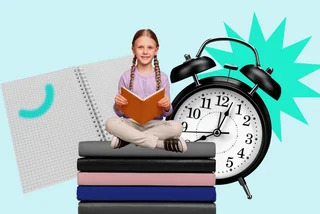Students across Czechia return to classrooms on Monday, Sept. 1, marking the start of the 2025-26 school year. Authorities estimate around 117,900 children will enter first grade, beginning a year that introduces several legislative changes and updated education programs.
The new school year brings reforms affecting school enrollment, compulsory attendance, and curriculum standards. Parents and schools will also see changes in administrative procedures, including the handling of parental leave and preschool placement. The measures aim to improve planning and support for students, teachers, and families.
These changes come as student populations in primary and secondary schools show modest shifts. Approximately 1,001,400 children are expected in primary schools, slightly fewer than last year, while around 487,300 students will attend secondary schools, an increase from 2024.
Legislative changes and school regulations
The new school year introduces several major reforms under the amended Education Act. Compulsory school attendance rules have been tightened, particularly regarding deferments.
Parents seeking to delay enrollment due to serious physical or psychological conditions must now provide specialist medical documentation, such as from oncologists or clinical psychologists, along with a recommendation from an educational counseling center. General pediatricians will no longer issue such recommendations.
New educational programs, including mandatory English classes from first grade, are also being introduced, and may be taught from this year. The new curriculum will become mandatory in primary schools from September 2027, while preschools are required to adopt new programs from September 2026.
The new regulations also adjust school enrollment timelines. Registration for first grade will now occur between Jan. 15 and Feb. 15, and preschool enrollment runs from March 15 to April 15.
For certain graduation programs, students may now complete their final school exam through a comprehensive profile project. Certification may also substitute for some parts of the school exam, including IT competencies, with final approval determined by individual schools.
Administrative procedures are also changing. From January, hybrid applications for secondary schools—combining paper and electronic submissions—will be discontinued, with students required to choose one format. The amendment also anticipates the merging of smaller schools in individual municipalities over the next three years to optimize resources.
Funding responsibilities will shift as well. Beginning in January 2026, municipalities and regions will cover salaries for non-teaching staff, including cooks, janitors, and other support personnel.
They will also be responsible for funding textbooks, teaching aids, teacher training, and school trips. The state will continue to fund school psychologists and special educators, with additional support available for schools serving economically disadvantaged students.
Czech school changes at a glance
Preschool care and parental policies
Alongside changes in schools, new measures will affect preschool education and parental planning. Starting next year, parents will be able to indicate in parental leave applications when and where they wish to enroll their child in preschool. Local authorities will receive this information quarterly, allowing them to anticipate demand and allocate sufficient places.
By September 2026, municipalities must guarantee preschool care for all children by their third birthday. If a local school cannot provide a place, parents will receive a childcare allowance until a spot becomes available.
Authorities note that while declining birth rates reduce the overall need for new preschools, capacity gaps remain in urban areas and regions with increasing populations.
Political parties in the governing coalition have also proposed increasing parental leave from CZK 350,000 to 400,000 and expanding tax benefits for third and subsequent children. The goal is to provide families with flexibility in returning to work while ensuring children have access to early education.




